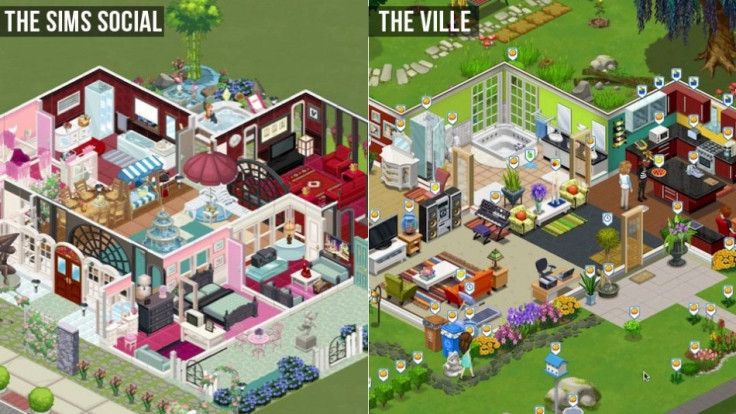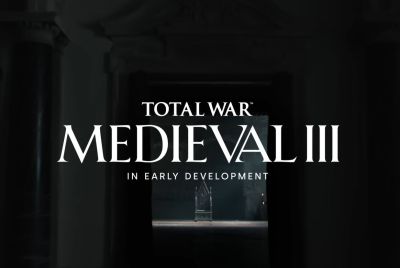Zynga Fights Back Against EA Copying Claims
Zynga, the developer of Facebook games Mafia Wars and Farmville, has filed a legal response to EA's complaints of copyright infringement.

Zynga has today called that part of EA's accusations against them to be struck off by judges, and that the case be brought in front of a jury.
Complaints have been raised against Zynga's game The Ville, which EA claim bears an infringing likeness to its game, The Sims Social. Both games are available on Facebook, and involve players building a virtual home for themselves and interacting with other players to earn coins and statistics.
But in a statement released on Game Industry, Zynga General Counsel Reggie Davis says that EA's accusations are unfounded:
"Today we responded to EA's claims which we believe have no merit. We also filed a counterclaim which addresses actions by EA we believe to be anti-competitive and unlawful business practices, including legal threats and demands for no-hire agreements. We look forward to getting back to focusing all our efforts on delighting our players."
Although EA's complaints are supposedly targeted at The Ville, Zynga's legal response is asking judges to ignore other accusations which it claims "serve no purpose other than to try to portray Zynga in a bad light."
"In sharp contrast to the confined inquiry that single claim requires, EA's complaint is an unrestrained ramble of immaterial, inflammatory, and prejudicial allegations that have no bearing on the issue at hand. These allegations are so patently irrelevant to the case that they appear geared more towards inciting the press coverage they generated than contributing to legal analysis. Zynga therefore moves to strike them."
The second filing completely denies any copyright infringement on behalf of Zynga, claiming that "life-simulation games" like The Ville and The Sims Social, were originally developed by Activision, not EA:
"It was Activision - not EA - that first developed the ideas found in The Sims Social, and it was Zynga - not EA - that first brought the concept to Facebook."
Attack
The second filing goes on to attack EA for its own business practices, explaining that Zynga would never replicate games which have already been proven to fail:
"EA's lawsuit ultimately rests on the implausible assumption that Zynga would launch a "copy" of a game that had failed months before Zynga released its own game. By the time Zynga launched The Ville, the user base for EA's The Sims Social had plummeted, and Zynga is informed and believes that EA already had relegated the game to its India Studio where EA games in decline are sent to be inexpensively maintained and ultimately discontinued."
As well as denying all claims, requesting the judge rule in its favour, and that any unresolved issues be decided by a jury, Zynga has also issued a third filing against EA which accuses it of breach of contract.
The original copyright infringement suit was opened after three EA executives - Jeff Karp, Barry Cottle and John Schappert - transferred to Zynga earlier this year. EA believed that Zynga had targeted the executives in order to obtain sensitive information regarding The Sims Social, but Zynga is claiming that is not the case:
"EA knows that none of the former EA executives it names in its lawsuit - John Schappert, Jeff Karp, and Barry Cottle - transmitted any EA confidential information to Zynga because EA itself was involved in, and approved of, the exhaustive measures undertaken to ensure that did not happen.
"The truth is that despite years of trying to compete, and spending more than a billion dollars on acquisitions, EA has not been able to successfully compete in the social gaming space and was losing talent, particularly to social gaming leader Zynga.
Exodus
"Desperate to stem this exodus, EA undertook an anti-competitive and unlawful scheme to stop Zynga from hiring its employees and to restrain the mobility of EA employees in violation of the spirit of the antitrust laws and California public policy.
"EA sought, by threat of objectively and subjectively baseless sham litigation, what it could never lawfully obtain from Zynga - a no-hire agreement that would bar Zynga's hiring of EA employees."
EA spokesman John Reseburg has responded to Zynga's counterclaim:
"This is a predictable subterfuge aimed at diverting attention from Zynga's persistent plagiarism of other artists and studios. Zynga would be better served trying to hold onto the shrinking number of employees they've got, rather than suing to acquire more."
The legal battle between the two companies continues.
© Copyright IBTimes 2025. All rights reserved.






















